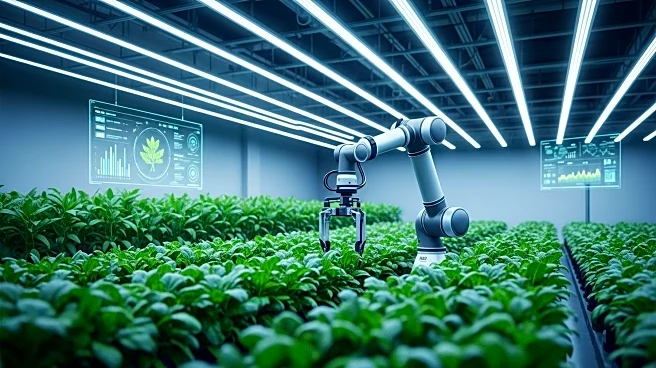What's Happening?
Scientists at the University of Arkansas are leveraging artificial intelligence (AI) to advance agricultural research, focusing on genetic variation and disease outcomes in livestock. AI models are being used to estimate gut maturity in animals, providing insights into animal health and productivity. The research integrates statistical learning and comparative biology to understand genome structure changes over time, particularly in agricultural contexts. This approach aims to predict evolutionary associations among traits and study protein diversity among plants, fungi, insects, and microbes.
Why It's Important?
The use of AI in agricultural research is significant as it offers new tools to enhance productivity and address complex biological problems. By linking genetic variations to disease outcomes, researchers can improve animal health and productivity, which is crucial for the agricultural industry. This approach also helps in understanding plant and insect interactions, potentially leading to better pest control and crop management strategies. The integration of AI in agriculture could lead to more efficient and sustainable farming practices, benefiting both the industry and consumers.










